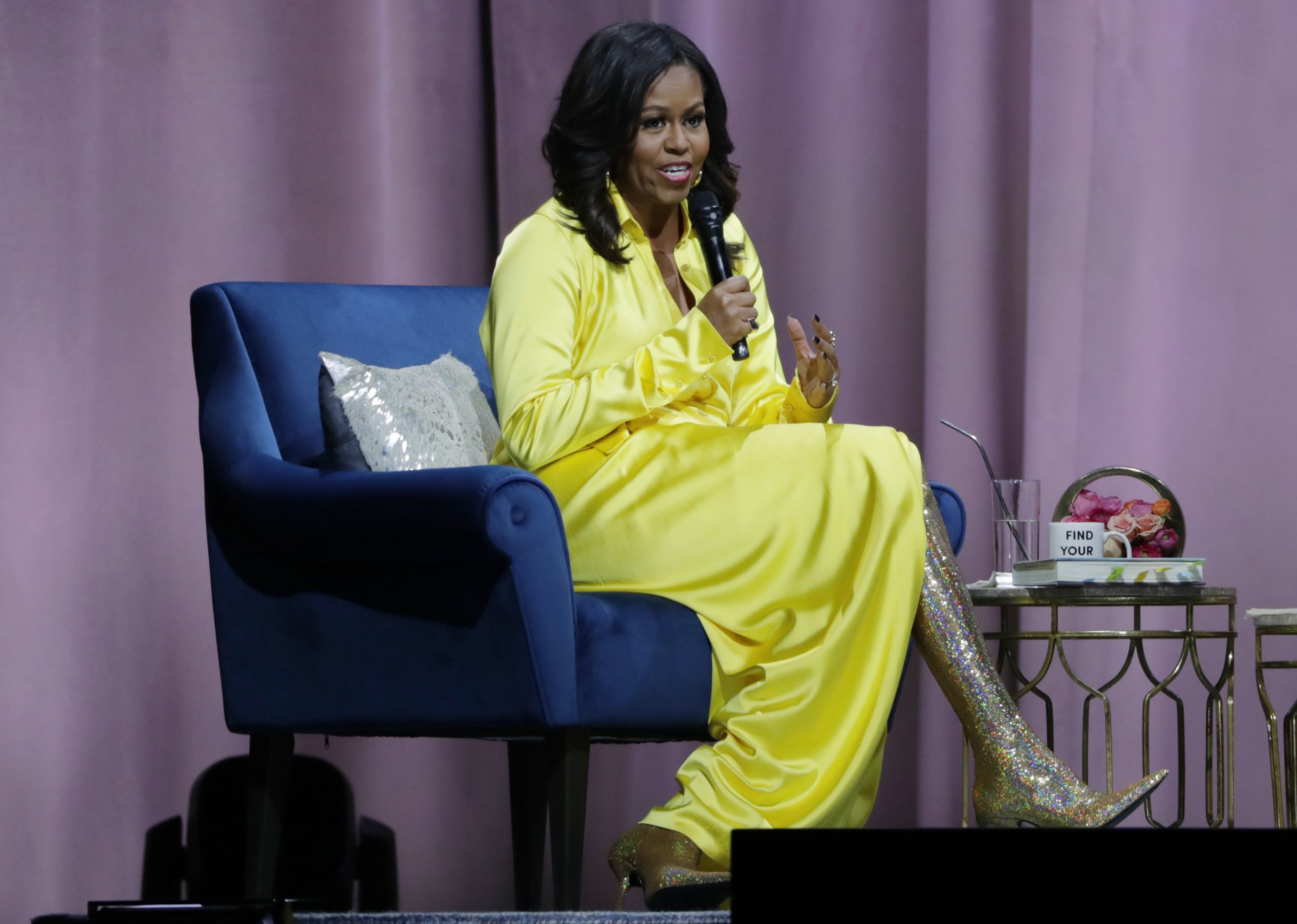Fashion is having an intersectional crisis as of late.
Bitter online mobs bloviate over Stefano Gabbana’s love of Melania Trump and insistence that Dolce & Gabbana dress the first lady. They melt down over the lack of trans and plus-size models in the annual Victoria’s Secret Fashion Show. Dragging Kendall Jenner for various brushes with cultural appropriation seems like a weekly occurrence. American Apparel, the iconic fast fashion brand that oozed raw sensuality and shamelessness, has been replaced by the boring, style-free brands like Universal Standard, which seems to think that “inclusivity” is an excuse to forgo fashion. Vogue, once the bible of style, now swears that “modest fashion” is taking over the market (yawn!).
So when Michelle Obama stepped out on stage in Brooklyn in a pair of gloriously glamorous, unabashedly feminine, and gratuitously glittery $3,900 Balenciaga thigh-high boots — with none other than the queen of Manolos herself, Sarah Jessica Parker — it was a moment, a metaphorical storm in a desert, a necessary display of unfettered fashion in a culture that seems bent on murdering it.
Sure, I wouldn’t have paired the boots with the equally loud dress that Obama donned, but I appreciated the refusal to fall into the same lazy aesthetics threatening to bore us all.

Of course both the haters and the soul-sucking social justice warriors came out in full to try and turn Obama’s boots into a political statement.
Vice: “Michelle Obama’s Sparkling Thigh-High Heels Are Political”
Chicks on the Right: “I HATE EVERYTHING ABOUT THIS LOOK. You know what else I hate about it, that she wore this glittered-corn-on-the-cob ensemble to sit there and trash out President.”
As I said, the usual suspects.
But women lamenting the death of style at the hands of progressivism, that curmudgeonly, godless religion that wishes to crush your individuality and conform to the politically correct, should revel in such decadence. When everyone has to be equal, nothing and no one can be beautiful. Every element of the socially progressive agenda culminates in the inevitable: the erasure of women and femininity.
Every time I see a story about some fashion brand or model or woman wearing something “problematic,” I’m reminded of a scene in Harrison Bergeron, Kurt Vonnegut’s dystopian short story about a world where everyone is finally equal:
“‘Ladies and Gentlemen,’ said the ballerina, reading the bulletin. She must have been extraordinarily beautiful, because the mask she wore was hideous. And it was easy to see that she was the strongest and most graceful of all the dancers, for her handicap bags were as big as those worn by two-hundred pound men.
And she had to apologize at once for her voice, which was a very unfair voice for a woman to use. Her voice was a warm, luminous, timeless melody. ‘Excuse me-‘ she said, and she began again, making her voice absolutely uncompetitive.”
Michelle Obama’s boots pierced a hole in the impending societal handicap radical egalitarians would thrust upon us. And it had nothing to do with politics and everything to do with popularity.
Class comes from confidence, and fashion is freedom, from listening to the haters and from fear of standing out. Melania Trump’s gold Reem Acra gown from the eve of her husband’s inauguration created such a moment, even if her more partisan appeal impeded the effect. But women across the aisle should celebrate the triumph of aesthetics over the censorship of style. (And, as an afterthought, men should thank us, too.)
